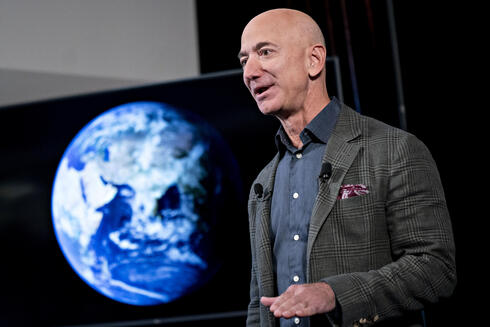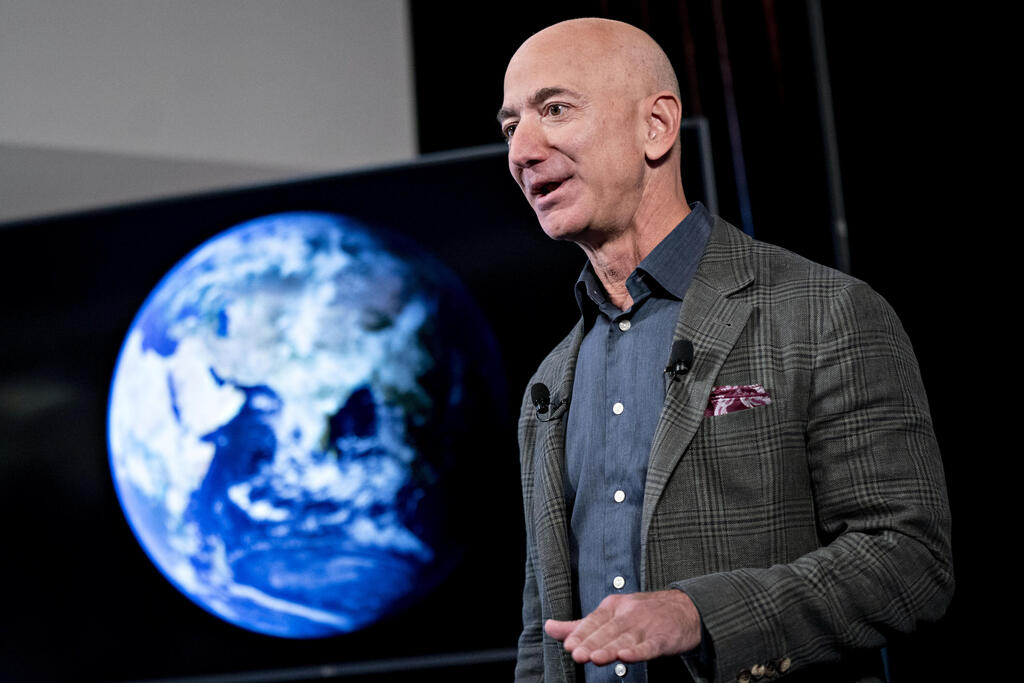
Bezos Earth rules out $30 million investment in Israeli alternative protein center due to war
Jeff Bezos’ climate fund had published a call for proposals for an Israeli center of excellence, but despite being “awed to see such a robust ecosystem for alternative proteins developing in Israel”, ultimately chose not to invest “given the uncertainty around the war at the current time.”
Bezos Earth Fund, the climate fund of Jeff Bezos, has decided not to invest in establishing a center of excellence for food tech in Israel at this time due to the war. The Technion - Israel Institute of Technology, and the Hebrew University applied to a call for proposals published by Bezos Earth last year and even received many compliments for their proposals. However, last week the fund informed the research teams that "Given the uncertainty around the war at the current time, such a large and significant grant for a Bezos Center is not a viable option for us in the current situation."
Andy Jarvis, Director of Future of Food at Bezos Earth, visited Israel last September. He met with the researchers of the Technion and the Hebrew University, and they presented to him the companies that emerged in the academy based on groundbreaking research in the field of alternative protein, and the future plans for a center of excellence. Bezos Earth’s plan was to invest $30 million in a new center, along with $70 million that would be invested by the university chosen to set up the center. That is, a total of $100 million for the center over a five-year period.
In an email obtained by Calcalist and sent by Jarvis to the teams of researchers and the Good Food Institute, which managed the call for proposals in Israel, he wrote: "Thank you again for all the time and effort you put into developing an impressive proposal for an Alternative Protein Center of Excellence, and also for hosting my visit back in September and showing me the wonderful things you are up to on alternative proteins. I was awed to see such a robust ecosystem for alternative proteins developing in Israel during my visit and have been enthusiastic about the prospect of a Center of Excellence in the region. The feedback from November’s evaluation panel was that both Israeli proposals would be poised to make phenomenal contributions to the sector.”
However, the many compliments were concluded by disappointment. Jarvis wrote: “Unfortunately, the events of October obviously have had an effect. Given the uncertainty around the war at the current time, such a large and significant grant for a Bezos Center is not a viable option for us in the current situation. We’ll monitor the situation, and should the situation dramatically improve, we will of course be in touch."
The Bezos Earth Fund, which aims to invest $10 billion in issues related to the climate crisis by the end of the decade, pledged this year to invest $60 million in the establishment of university centers for sustainable protein research, to reduce the environmental damage caused by the consumption of animal-based food, and to increase the quality and availability of plant foods rich in protein. While a center in the field will not be established in Israel at this time, in 2024 Bezos's fund has already started establishing other centers in the world, which leaves Israel behind precisely in a field where it currently has a significant advantage.
The alternative protein industry raised $1.6 billion in investments in 2023 and another $299 million in the first half of 2024. All in all, the total investments in the industry have reached about $16 billion, with about 80% of the amount coming since the beginning of 2020. Investments slowed down significantly in 2023 amid the overall slowdown in high-tech investments. In the years 2021-2022, more than a billion dollars of private investment in the field flowed into Israel, which in recent years has been considered the second most important center in the world in regard to startups and investments in the sector, after the U.S.
Startups that are considered to be at the cutting edge of the field in the world have sprung up in Israel, such as cultured meat companies led by the Technion's Aleph Farms, or alternative protein companies such as Redefine Meat.
Israeli universities reacted to the news with understandable disappointment. Prof. Benny Chefetz, head of the Department of Soil and Water Sciences of the Robert H. Smith Faculty of Agriculture, Food and Environment of the Hebrew University, said: "This is a loss for Israeli research and innovation. The center was supposed to lead research innovation not only in the context of the development of technology and products but to address the issue of reducing costs for the consumer, reducing the carbon footprint, and improving nutritional value. If until now we have seen the humanities and social sciences suffer because of the war, this is the first time that we have encountered such a blatant refusal due to the war. The email we received describes in the most simple and cruel way the reality of Israeli academia and research these days: people don’t want to invest in Israel at this time and this also raises concerns going forward.".
The Technion said in response: "The State of Israel and the Technion in particular are indeed among the world leaders in the field of alternative proteins. However, the Technion does not discuss private correspondence publicly."
GFI Israel stated: "Israel is at the forefront of research in this field thanks to a unique combination of technology and advanced thinking, and thus we will continue to be at the forefront of the effort to create a safe and sustainable food ecosystem. We are happy to support the efforts of the Bezos Earth Fund and to be partners in the activities of universities to establish research institutes. We hope that this will be possible as soon as possible."














